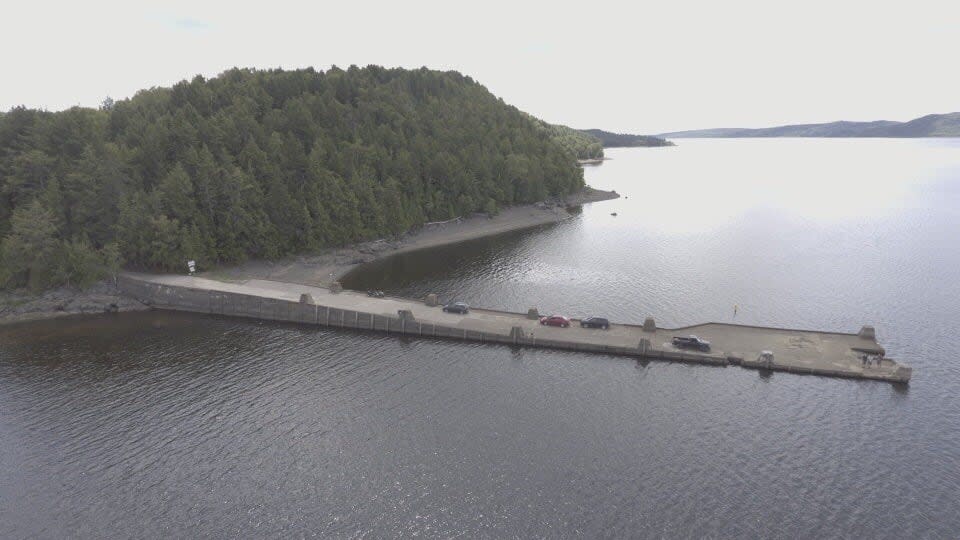N.B. non-profit wants to see the St. John River's centuries-old wharves promoted, protected and preserved

In the early 1800s, steamboats would pick up and drop off passengers at several wharves situated along the St. John River in New Brunswick.
In the 1920s, those wharves were taken over by the federal government and redone in concrete for the riverboats, according to Dino Kubik, executive director of the St. John River Society.
These days, the wharves are used for leisure activities, including swimming and boating, and the society, which holds the deeds for 13 of them, wants to ensure public access to the river can continue.
"We're going to make an effort this summer through social media to tell the story of the wharves and why people should come and see them and experience them," said Kubik.

Dino Kubik, pictured in a boat on the St. John River, hopes the St. John River Society can bring awareness to the wharves that line the river. (Ann Harvey/Submitted by Dino Kubik)
The society received more than $970,000 in federal funding from the Canada community-building fund, which is administered by the provinces, in order to make some needed repairs to the wharves.
Kubik said the changing climate is having an effect on the wharves. He said there are higher water levels than in years past and more dramatic weather events and rain. Flooding has also had an effect on the wharves, so some structural changes need to be made to ensure they can be enjoyed by future generations.
Kubik said the society will be adding metal plates to the corners on some of the wharves, replacing some of the sheathing, patching some cracks and adding guard boulders to places especially vulnerable to high water levels.
While the St. John River Society holds the deeds to 13 of the wharves, Kubik said they are trying to go further than that. The society had an easement added to the deed for the Whites Bluff wharf.

The St. John River Society had an easement added to the deed for Whites Bluff wharf, pictured here. (Whites Bluff Wharf/Facebook)
An easement refers to the right to use the land of another. Kubik said having this easement means that if something were to happen to the society in the future and the wharf were to fall from their hands, people would still have the right to use the wharf for river access, no matter what.
He said the society is in talks with a lawyer to see about getting an easement for the other 12 wharves.
"It's a very small detail, but it's an expensive detail to get written into your deed," said Kubik.
"Organizations like the society, they're always changing, but we want to make sure that no matter what change happens, people will always be able to cross these wharves and access the river."

Colwells wharf is in Lower Cambridge and is one of 13 managed by the St. John River Society. The society obtained funding to make some necessary repairs to the wharves. (Ed Coy/Submitted by the St. John River Society)
The communities around the wharves, said Kubik, have strong memories of them and a sense of "wharf culture." He wants other New Brunswickers to also experience that, which is one of the reasons behind the repairs and the planned social media education.
"Come there with your friends, come there with your family to those wharves, experience the wharf and create some memories, feel that wharf culture," said Kubik.
"You go to one wharf, I guarantee you'll be going to more."


